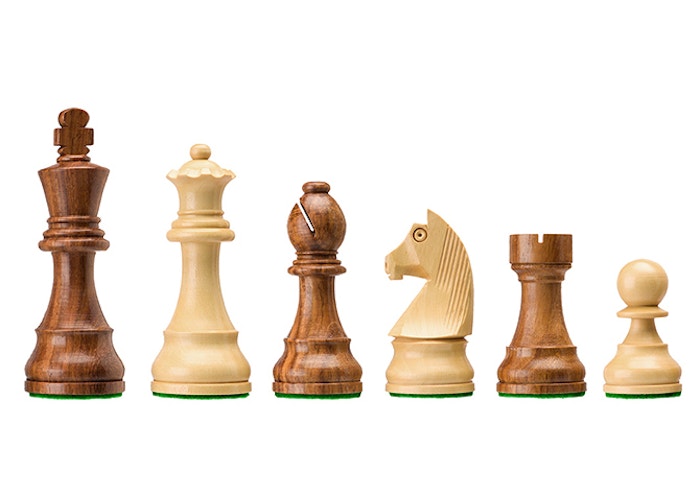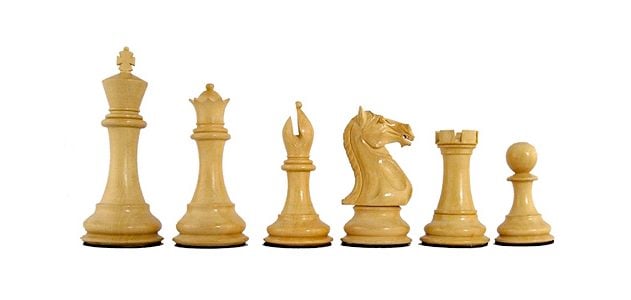Key Chess Strategies for New Players
Wiki Article
Approaches for Chess: Unlocking the Keys to Mastering the Game
Chess strategies include a series of methods crucial for success. Comprehending the fundamentals is necessary for any gamer. Each phase of the game-- from openings to endgames-- needs an unique approach. Mastering these aspects can result in substantial benefits. The journey doesn't end with fundamental understanding. There are deeper layers to explore, exposing the intricacies that can truly boost one's game. What exists beyond the surface of these basic approaches?Understanding the Basics of Chess
While lots of gamers concentrate on sophisticated tactics and techniques, understanding the basics of chess is essential for anyone seeking to improve their game. The structure of chess starts with the guidelines, which dictate how each item moves and captures. Familiarity with the board's layout and item worths is essential, as it aids gamers examine settings and make notified decisions.Furthermore, mastering standard principles such as control of the facility, piece development, and king safety prepares for reliable gameplay. Players ought to learn the relevance of keeping pawn structure and recognizing threats, as these elements can substantially affect the outcome of a suit.

Establishing a Winning Opening Method
A successful opening approach in chess is vital for establishing a helpful setting early in the game. Gamers usually concentrate on crucial concepts such as piece growth, control of the center, and king security. Creating items efficiently enables higher movement and tactical opportunities, while occupying the main squares improves impact over the board.Opening approaches can differ substantially, from aggressive lines focused on fast attacks to solid formations that focus on defense and steady advancement. Familiarity with usual openings, such as the Ruy Lopez or Sicilian Defense, can give players with a repertoire to draw from and adjust to challengers' feedbacks.
In addition, preserving adaptability in one's opening up technique is vital, as stiff play can lead to foreseeable patterns conveniently made use of by knowledgeable challengers. Eventually, a winning opening approach sets the phase for an effective middle game, paving the way for triumph.
The Relevance of Board Control
Board control works as a basic aspect of chess strategy, significantly affecting the result of the game. Effective board control enables a gamer to determine the rate and flow of the match, offering possibilities for tactical growth while restricting the challenger's choices. By inhabiting crucial squares, particularly in the facility, players can enhance their item movement and produce stronger settings.Controlling the board also assists in much better sychronisation among items, allowing tactical combinations and defenses. Chess. This benefit typically converts right into enhanced pressure on the opponent, leading to possible errors or mistakes. Alternatively, a lack of board control can leave a player at risk, as their pieces come to be limited in movement and efficiency
Hence, understanding the art of board control is crucial, as it lays the foundation for successful maneuvers and lasting read strategic preparation, eventually determining the champion in chess.
Strategies and Mixes: Searching For Hidden Opportunities
Discovering tactics and mixes is important for gaining an advantage in chess, as it allows gamers to make use of weak points in their opponent's setting. Tactical recognition includes recognizing patterns such as forks, pins, and skewers, which can result in product gain or positional advantage. Gamers need to constantly scan the board for surprise possibilities, assessing possible risks and feedbacks.Combinations typically involve go to my site a series of moves that might originally appear counterintuitive however can culminate in a definitive outcome. Chess. For example, sacrificing an item to entice an opponent into a catch can move the game's energy
Furthermore, effective estimation is essential; gamers must imagine several moves in advance to predict the repercussions of their actions. Routine method of tactical challenges can sharpen this ability. Inevitably, grasping tactics and combinations empowers gamers to seize control of the game, transforming apparently normal settings into winning chances.
Endgame Techniques: Safeguarding Your Success
Mastery of techniques and mixes lays the groundwork for success, yet acknowledging just how to convert benefits into success during the endgame is similarly important. In this phase of the game, gamers must concentrate on item sychronisation and pawn promo. Understanding vital concepts such as resistance and regulating key squares can substantially improve one's chances of winning.Effective endgame techniques entail simplifying the position when ahead, trading items to reduce the challenger's counterplay, and utilizing the king proactively as a dealing with piece. Players ought to intend to develop passed pawns that can progress towards promo, compeling the opponent to divert sources to resist them.
Exercising typical endgame situations, such as king and pawn versus king, can give invaluable experience. Preserving persistence and insight during the endgame will usually separate the newbie from the master, as decisive moments can emerge all of a sudden.
Evaluating Your Opponent's Moves
How can a gamer effectively expect their opponent's technique? Assessing an opponent's actions is important for developing an one-upmanship in chess. Gamers should observe patterns in their opponent's play design, noting tendencies such as hostile or protective maneuvers. By recognizing these patterns, a gamer can anticipate potential reactions and prepare counter-strategies.Furthermore, recognizing the opening options can expose a riches of information regarding a challenger's preferred strategies. Players need to likewise examine the timing and context of details moves, taking a look at the underlying motivations behind them.
Using techniques such as keeping an adaptable mindset and adapting to changes in the game can boost a player's ability to react successfully. Additionally, keeping an eye on their challenger's clock administration might supply insights into their degree of confidence and comfort with the position. On the whole, meticulous monitoring and analysis are necessary for expecting and counteracting a challenger's strategy.
Constant Understanding and Enhancement in Chess

Continual learning is a fundamental element of boosting one's chess game, enhancing the analytical abilities developed through observing challengers. Gamers can enhance their abilities by examining traditional games, discovering opening up theories, and engaging with literature on innovative approaches. On-line sources and chess engines offer indispensable tools for evaluating previous games, enabling players to recognize blunders and fine-tune their decision-making procedures.
Taking part in competitions and informal matches is essential for practical experience, allowing gamers to use brand-new knowledge in real-time scenarios. In addition, joining clubs or online forums promotes an area atmosphere where players can trade understandings, review strategies, and obtain constructive responses.
Routinely examining one's very own games and those of higher-rated players helps brighten areas for improvement - Chess. By cultivating a frame of mind of long-lasting understanding, chess enthusiasts can constantly adapt, advance, and inevitably reach their potential in this intricate and rewarding game
Frequently Asked Inquiries
What Are the Ideal Chess Publications for Beginners?
The most effective chess books for beginners include "Chess for Dummies" by James Eade, "The Full Bonehead's Overview to Chess" by Patrick Wolff, and "Bobby Fischer Shows Chess." These resources give essential techniques and crucial knowledge for new players.Exactly how Do I Take Care Of Shedding Touches in Chess?

What Online Platforms Are Finest for Exercising Chess?
Popular on the internet systems for practicing chess consist of Chess.com, Lichess.org, and Internet Chess Club. Each offers various features such as challenges, tutorials, and affordable play, accommodating different ability degrees and choices amongst chess enthusiasts.
Just How Can I Enhance My Chess Visualization Skills?
To improve chess visualization abilities, one should practice mental workouts, resolve puzzles, analyze video games without a board, and slowly enhance the complexity of settings. Frequently playing blindfold chess can additionally significantly boost visualization abilities.
What Are Typical Emotional Catches in Chess?
Common mental catches in chess include insolence, time stress, and the fear of mistakes. Gamers might additionally come down with confirmation predisposition, leading them to overlook far better moves while focusing on previously successful methods.Report this wiki page